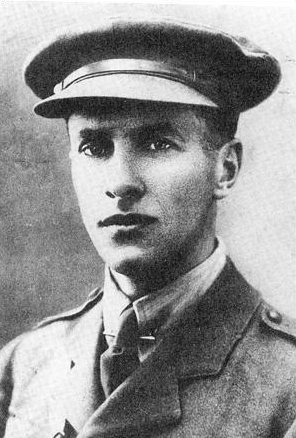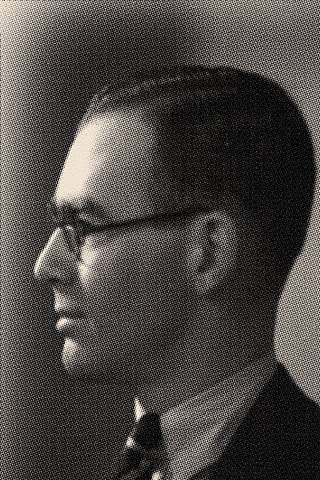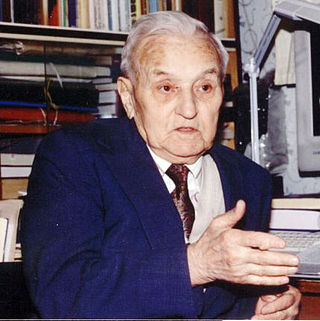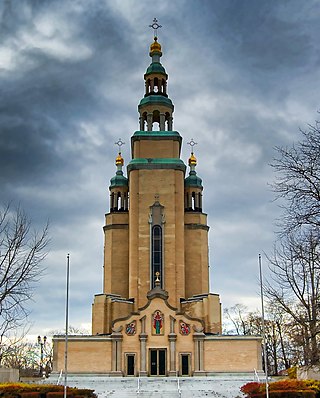This article needs additional citations for verification .(August 2010) |
The Ukrainian Canadian Civil Liberties Association (UCCLA) (French : L'Association ukrainienne-canadienne des droits civils (AU-CDC)) is a Ukrainian organization in Canada. Established in 1986 after the Civil Liberties Commission (affiliated with the Ukrainian Canadian Congress) was disbanded, [1] its members – all of whom are volunteers – have been particularly active in championing the cause of recognition, restitution and reconciliation with respect to Canada's first national internment operations, [1] [2] [3] [4] helping secure a redress settlement in 2008 with the Government of Canada along with the Ukrainian Canadian Congress and the Taras Shevchenko Foundation. [2] [5] They have also challenged claims of the presence of Nazi war criminals hiding in Canada, [1] [6] [7] and documented the presence of veterans of the NKVD, SMERSH, and KGB in Canada. [8] The first chairman of the CLC/UCCLA was John B. Gregorovich, a lawyer. [9] The last chairman was Roman Zakaluzny. He resigned in September 2024. The immediate past president, and UCCLA's last founding member, was Dr Lubomyr Luciuk, who resigned from UCCLA on 6 November 2024. [3]
Contents
UCCLA's members met annually during conclaves held in different cities across the country, [10] often co-ordinating their meeting dates with the unveiling of trilingual historical markers commemorating the internment operations at different camp locations [3] or otherwise recalling important individuals or events in Ukrainian and Ukrainian Canadian history.[ citation needed ] The association and its supporters have also placed two dozen trilingual markers and four statues across Canada, [9] [11] in Ukraine [7] [12] and in France [13] honouring the Ukrainian Canadian Victoria Cross recipient, Cpl Filip Konowal; [14] recalling the contributions of Ukrainian Canadian servicemen and women during the Second World War (London, England); [15] [16] and honouring the Welsh journalist, Gareth Jones, reported on the famine of 1932–33.[ citation needed ] UCCLA has also commissioned a number of articles and books that have been distributed internationally dealing with the famine,[ citation needed ] Anglo-American perspectives on the question of Ukraine's independence,[ citation needed ] the Ukrainian nationalist movement before, during and after the Second World War, [17] and Soviet military operations. [18] [ citation needed ] In 2003–2004, UCCLA campaigned to have the 1932 Pulitzer Prize of Walter Duranty, the New York Times correspondent in Moscow from 1922 to 1934, revoked. Duranty wrote in 1933, during the Great Famine, that "there was no famine" and criticized articles by other Western journalists as "failed predictions of doom for the Soviets". [19]
In 2010 UCCLA strove to ensure that all 12 galleries in the publicly funded Canadian Museum for Human Rights were thematic, comparative and inclusive – rather than elevating the suffering of any one or two communities above all others. To that end the association distributed thousands of protest postcards nationally and published a notice raising their concerns in The Hill Times (31 January 2011). Some of UCCLA's critics have tried to censure or even call for the silencing of its voice in the public debate over the proposed contents and governance of the tax payer funded Canadian Museum for Human Rights. One of UCCLA's other recent campaigns (February 2016) involved an appeal to the then-Minister of Canadian Heritage, the Honourable Mélanie Joly, requesting her intervention to help save and re-consecrate the internment camp cemetery at Spirit Lake (La Ferme), Quebec. That internee cemetery remains abandoned and in ever-deteriorating condition, despite being a unique Canadian historical site.
UCCLA was a volunteer organization supported by the donations and efforts of thousands of Canadians of Ukrainian heritage.










